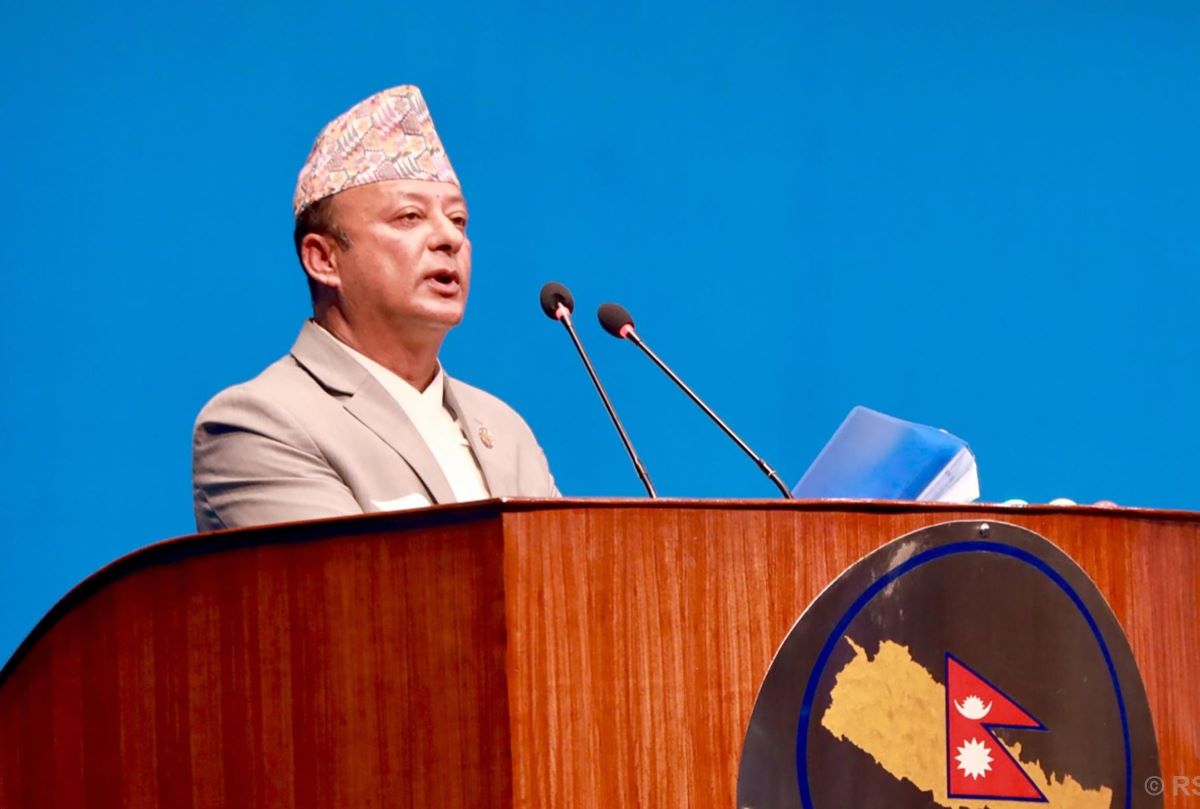

KATHMANDU: Minister for Energy, Water Resources and Irrigation, Deepak Khadka, has said the government is working to find a durable solution to issues caused by the Rapti River.
Responding to concerns raised by lawmakers during a meeting of the House of Representatives (HoR) today, the
Minister said that the government is committed to addressing the recurring issues of flooding and inundation caused by the river.
Although the Government of India allocated a grant of Rs 350.3 million over the past three years for the construction of embankments along the Rapti River from Kushum in Rapti Sonari rural municipality–1 to Gangapur in Narainapur rural municipality–6, the delay in convening a bilateral meeting for three consecutive years hindered the progress of the project, the Minister informed the House. He assured that a date for the meeting will be determined set soon.
In addition, the Asian Development Bank has provided Rs 1.43 billion to Nepal for river control initiatives, while the government has allocated Rs 419 million for the same purpose.
According to the Minister, detailed studies of the Babai River in Dang and its tributaries, along with the western Rapti River across the Dang and Banke sections, have been completed. Based on these findings, Detailed Project Reports (DPRs) have been prepared and are being progressively implemented to mitigate river-induced disasters and promote long-term resilience.
Health Minister emphasizes on integration of all health schemes with Insurance Board
Likewise, responding to lawmakers’ questions in the meeting of the House of Representatives today, Health Minister Pradip Paudel highlighted the need to integrate all government health service programmes into the Health Insurance Board.
He contended that if all health programmes were integrated into the insurance board, affordable, accessible, and free treatment for the impoverished could be ensured.
Health Minister Paudel stated that although funds for health treatment have been allocated under various headings, the expected results have not been achieved, hence the entire programme should be incorporated into the health insurance board.
He informed the House that from this fiscal year onwards, programmes will be initiated at the community level to screen for non-communicable diseases, mental health issues, and to enhance awareness, diagnosis, and prevention of diseases.
The Minister stated that there is a need to increase investment in healthcare management, treatment, rehabilitation, and palliative care to reduce the growing personal financial burden.
He said that this year 2,500 additional medical staff will be added and the capacity of the government hospital will be expanded by 500 beds.